Click to view our Accessibility Statement or contact us with accessibility-related questions






PRODUCTS YOU MAY LIKE
Trending Posts in Audiophile
itsamepe
Sennheiser PC37X randomly goes bad after disconnecting the cable ?
Greetings, Yesterday I was using my headset like normal with my macbook, just listening to music and on a call with people like usual, and the headset was perfectly fine. The stock wire that came with the headset is extremely long and yesterday it annoyed me very much that it kept getting tangled with itself, so I decided to see if the cable is replaceable. I pulled out the cable from the headset and saw the adapter, and looked online for a replacement. Upon plugging it back in, the audio sounded extremely muffled and washed out. Im not sure what I did wrong to make it mess up like that as I've always taken good care of it, ive had it for about 2 years and its always just been chilling on my desk, but anywho I thought the cable just went bad and ordered a replacement. The replacement came, and the issue is still persistant, so I am not sure what the issue is I've tried multiple different headsets and the issue is not with the port, and I also tried it with my windows laptop and...
Apr 23, 2024

MrChiSox
Big changes coming to my tiny little music room, I've recently purchased a new stack. Currently figuring out where to locate it all and ordering up the necessary cables, it won't be too long before I'm up and running. I am now the proud owner of a brand new stack. It's a European brand called Earmen. Amp, DAC, Streamer & Linear Power Supply. It won't be long!
https://www.youtube.com/watch?v=MB15yM4UptQ
Apr 23, 2024

Briankan
Recommendation for my next headphone set? I have Koss 95x
Hey all, What would you recommend I get next and why? I have Koss ESP-95x electrostatic massdrop headphones. These are my first and only audiophile set. I love them. I think my only real requirements is $500 or less for the headphones and that they have a little more low end. I don’t need thump but these are really light on lows…but the experience is still awesome. Also any recommendations on an amp? I only have my electrostatic thingy. I am using the Topping D50 DAC. thx!!
Apr 22, 2024

Simthaniel
Rigs
Modded headphones with qudelix at the core
When I received the Qudelix 5K, I had already modified a pair of Superlux HD-681 headphones. I previously soldered my own balanced connections to the drivers, providing multiple ways to connect and...
Apr 14, 2024

brothamike
A decent set of IEMs
I am in the midst of a 300 hour burn-in but, I will say I am enjoying how this set sounds so far. Before I received these which was btw late by a few weeks, I purchased a Sony/Kimber Kable MMCX...
Apr 12, 2024
merrick97
Should I exchange the PC38X for better headphones?
I bought the PC38X headphones FOR GAMING and they are great, but I have NO use for a Microphone since I don't do competitive gaming and I was wondering if there were better headphone options at a similar price without a headphone, where (presumably) more of the cost was put into making it sound better. I also find that my PC38X don't get quite as loud as I would like and I was wondering if a cheap amp like the iFi Go link would draw a little more volume out of my phones. https://www.amazon.com/dp/B0BN6MM822?psc=1&ref=ppx_yo2ov_dt_b_product_details I went with the PC38X since it was considered the best bang for buck headphones. I care most about using spatial apps like DOlby Atmos and DTS Headphone:X. Suggestions are welcome.
Apr 11, 2024

LostnAmerica
Sound Signature of the Grell Project.
Wondering what type of sound signature the Drop Grell project headphones will have or trying to attain. Any update would be appreciated.
Apr 8, 2024
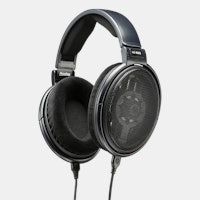
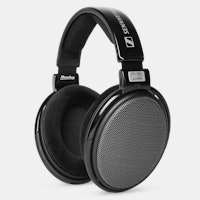
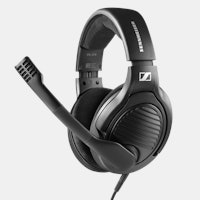
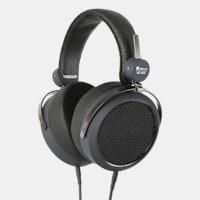
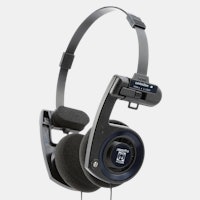
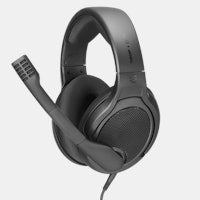
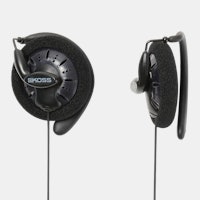
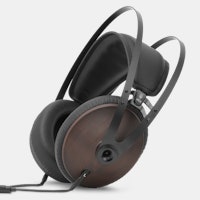
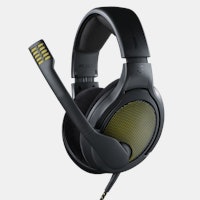
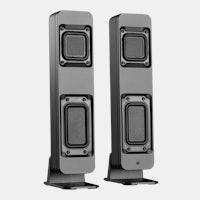
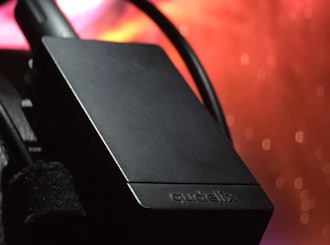
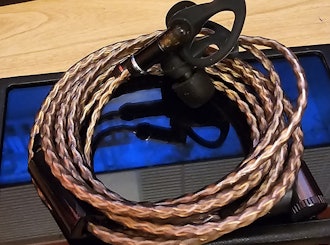
Firstly: Know safe limits. No amount of exercise or force of will can make your ears stronger, and loud music over different periods of time can perminently damage your hearing (you can‘t fix them, and hearing aids suck) each time you overdrive them. If you love music loud, listen for less time...
Knowledge: http://dangerousdecibels.org/education/information-center/noise-induced-hearing-loss/ More Knowledge: http://dangerousdecibels.org/education/information-center/decibel-exposure-time-guidelines/
Secondly: Clearer. Sometimes, we turn up the volume to hear quiet details or to compete with the environmental noise around us.
I’m literally in a rainstorm right now, and I‘m tempted to turn up my music a bit to compete with the fat raindrops (though I don’t dare compete with the thunder). Instead, I switched to a closed headphone, lowering how much environmental noise interferes with what I want to hear. IEMs should provide good noise isolation though, some more than others.
That said, a better DAC (Digital to Audio Converter, all headphones operate with Analog signals and so our digital music needs to be converted somehow). Cheap DACs produce the same notes as expensive ones, but an upgraded DAC helps make each note more distinct and more accurately match your brain’s reference of what natural sound is. Transducers (headphones and speakers) need amplification to make sound at all, but Amps all fuzzy up the sound to some extent, but better and better amps cause less and less distortion, plus you need the volume control. An upgrade to these components might make the sounds so clear and crisp that you can enjoy it more even without turning up the volume.
Lastly, there are some apps that playback audio cleaner than just straight from TIDAL or the Apple Music app. I’m looking to Amarra Play, which has a free mode to play music stored in your phone and added to the iTunes library, and a paid mode that lets you stream from your computer or TIDAL. I haven’t tried it yet, but friends I trust rave about Amarra‘s sound quality: https://itunes.apple.com/us/app/amarra-play/id1061144320?mt=8 Also heard rave things about this: Neutron Music Player by Neutron Code Limited https://itunes.apple.com/us/app/neutron-music-player/id766858884?mt=8 Sennheiser‘s CapTune app plays TIDAL and local iTunes content, has a nice EQ tool that uses A/B comparisons to help you find your taste and can save EQ profiles for each headphone (especially nice with Bluetooth): CapTune by Sennheiser electronic GmbH & Co. KG https://itunes.apple.com/us/app/captune/id967958634?mt=8
Ears try to protect themselves to reach those times, by tensing up and producing excess ear wax, which also makes the music sound less clear.